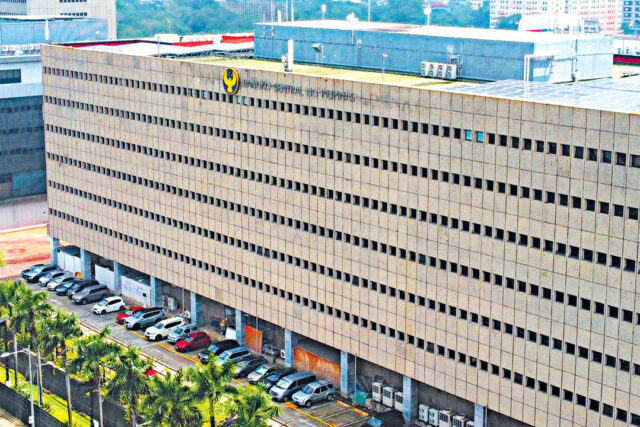Supply chain, red tape drive up PHL cosmetic costs — group
By Aubrey Rose A. Inosante, Reporter
PHILIPPINE COSMETIC products remain costly due to supply chain constraints, including high logistics and energy costs, and the need for improved business processes, the Chamber of Cosmetics Industry of the Philippines, Inc. (CCIP) said.
These issues are exacerbated by regulatory red tape, affecting both production costs and market competitiveness, Jenny Rose S. Nuñez, CCIP Executive Vice-President for External Affairs, said in an interview with BusinessWorld on Aug. 13.
“Filipinos see local as the new premium because it’s more expensive. But it gives you some story. It relates to the people that this is a Filipino brand,” Ms. Nuñez said.
CCIP is an organization comprised of over 180 member companies, representing manufacturers, distributors, raw materials suppliers, packaging suppliers, and exporters of cosmetic products.
Ms. Nuñez said locally made cosmetic products are more expensive than those in neighboring countries due to isolated logistics requiring air or sea transport for raw materials, higher energy costs, and reliance on imported materials.
“As an organization, we serve as a linkage to government and industry partners,” CCIP President Christine Michelle P. Reyes said. “We make sure that we extend our reach to local, national, regional, and international organizations because we partner with them in some of the trade shows to help our thriving industry.”
Ms. Reyes said CCIP educates consumers and members on regulations like the Association of Southeast Asian Nations Cosmetics Directive and guidelines from agencies such as the Food and Drug Administration, the Department of Trade and Industry, the Department of Environment and Natural Resources, and the Bureau of Customs.
The beauty and personal care market in the Philippines is projected to generate $6.47 billion in revenue in 2024, with an annual growth rate estimated at 1.32% until 2028.
Among the drivers of growth are public awareness of new product claims, especially sustainability, and the dissemination of information on social media platforms.
“It’s also relevant. Clean beauty. When you say clean, it’s nontoxic and, of course, consumers are becoming more educated on the safety of some ingredients and the harmful effects of chemicals,” Ms. Reyes said.
She added that it presents an opportunity for companies and manufacturers to produce products that are safe, of good quality, and sustainable.
However, CCIP warns against those who practice greenwashing to pass off their products as sustainable.
Ms. Nuñez cited three major challenges that the industry needs to address.
“First, it is innovation. The Philippines is a copycat. When we see trends in Korea, we follow them,” she said, adding that there is a workforce lacking the skillset to support cosmetic innovation.
In addition, the ease of doing business is a concern, with CCIP members worrying about the volume and overlapping permits and requirements for those starting their cosmetic business.
In response, CCIP will conduct two to three days training on Good Manufacturing Practice, in partnership with the Mandaue Chamber of Commerce and Industry, to discuss how to run a cosmetic business.
Meanwhile, Cosmeticon 2024, led by CCIP, will be tailored for starting entrepreneurs or micro, small, and medium enterprises.
This two-day conference will allow attendees to learn how to drive digitalization and sustainability that are currently shaping the cosmetics industry.
Among the topics that can be learned from experts are how to leverage technology to streamline business, navigate the regulatory landscape, develop sustainability practices for a “future-proof” beauty company, and the latest trends in cosmetic formulation.






















